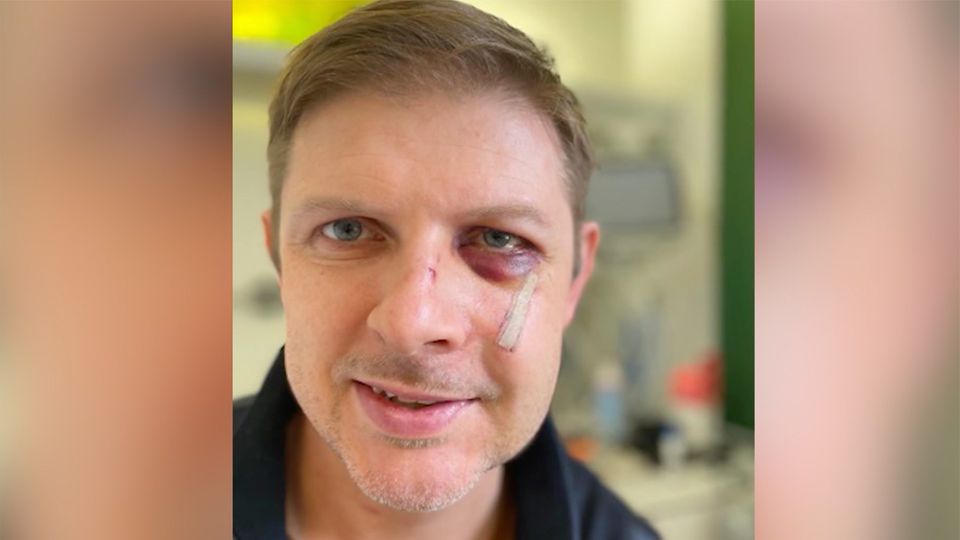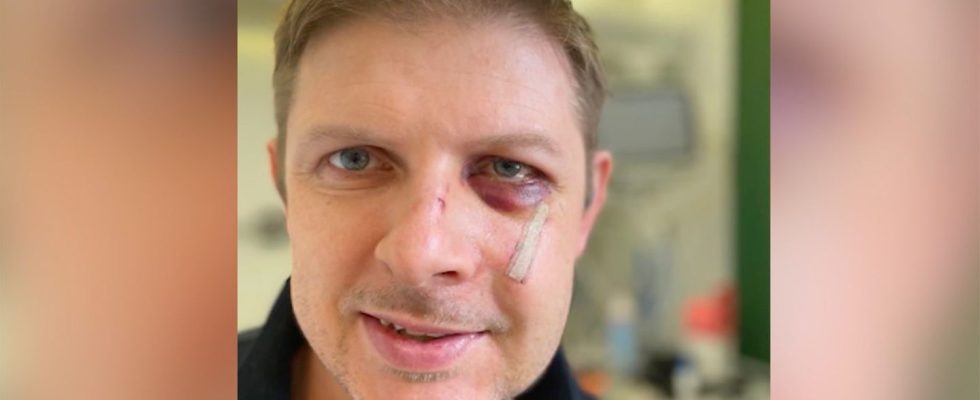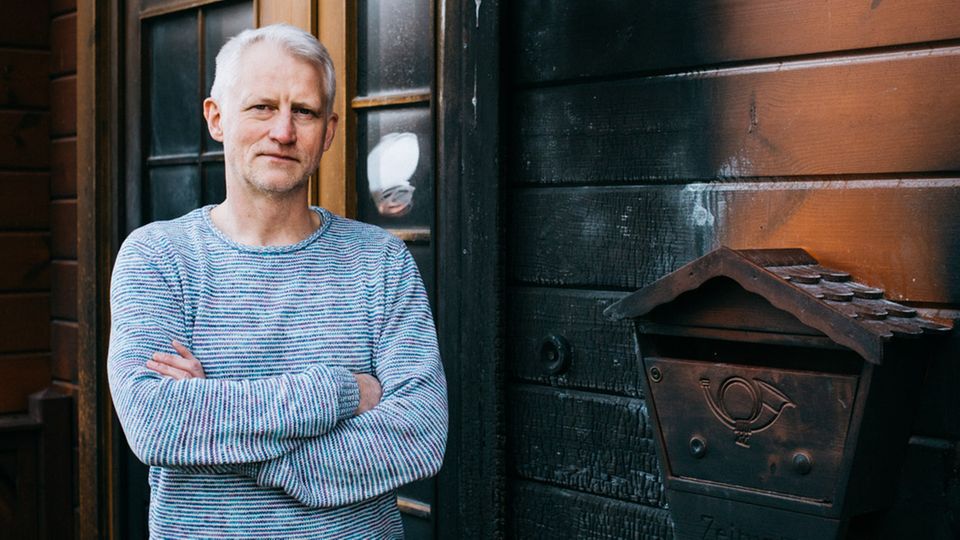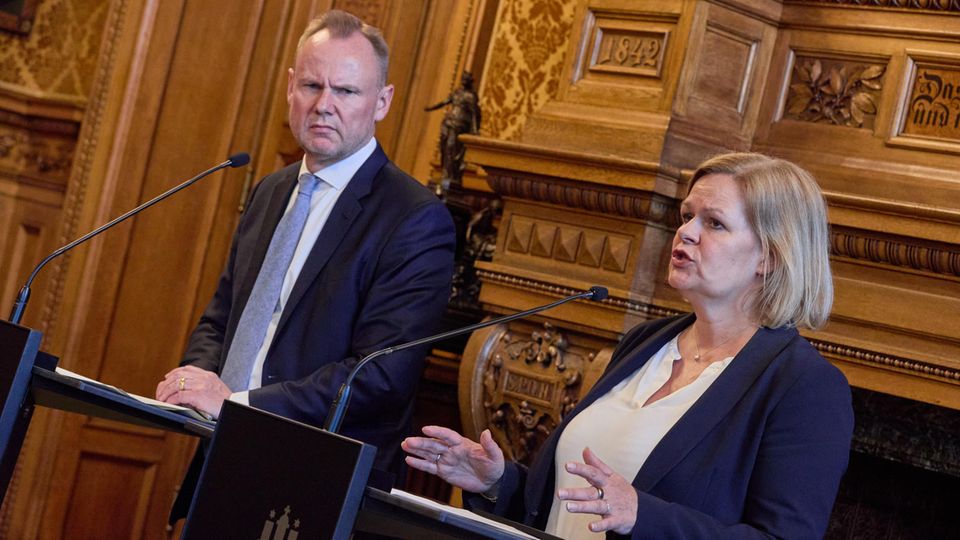Attacks on politicians
The parties want to protect their election campaigners from attacks
SPD politician Ecke reports from hospital after attack
© n-tv
Attacks on politicians and campaign workers are increasing. What are the parties doing about it? The star has asked.
Berlin’s Senator for Economic Affairs Franziska Giffey appears composed as she steps into the blazing sun on the banks of the Spree on Wednesday. The day before, the SPD politician was attacked while visiting a library. A man hit her on the head and neck with a bag filled with a hard object. The former Federal Minister for Family Affairs tells the press representatives in attendance that she is observing a “kind of fair game culture” in Germany. “According to the motto: Especially with politicians it doesn’t matter, you can do anything.”
The attack on Giffey is not the only incident in recent days: In Dresden, SPD MEP Matthias Ecke was so seriously injured while hanging up election posters that he had to be operated on. Two Green Party poster teams were also attacked. In Nordhorn, Lower Saxony, an AfD MP was pelted with an egg and hit in the face at his information stand.

Injured politician reports from the clinic with a selfie – party colleagues demand: “Don’t be intimidated”
01:47 minutes
The President of the Federal Criminal Police Office, Holger Münch, recently expressed concern: Last year there were 27 physical attacks on politicians, this year there have already been 22. The number of insults has also increased significantly. Nationwide, the Greens are most affected by insults, while the AfD is most affected by physical injuries.
Protection against attacks: The parties give these tips
How can the parties protect their activists on site? They are inevitably somewhat helpless in the face of this question; after all, they cannot have every local politician and every campaign worker accompanied by bodyguards. But they try to take precautions and make recommendations. What exactly does that look like? The star gives the overview:
SPD: Hotline and advice on new recommendations
The Social Democrats have a direct hotline to the party headquarters, the Willy Brandt House, where members who experience attacks on site can report. “We also provide guidance on the legal situation in the event of hate online or on protecting events,” said a spokesman. The party school has also been offering training on the topic for years.
They currently want to take a new look at the situation: “In view of the latest developments, we will discuss with the divisions about a minimum number of participants for campaigns such as posters and information stands.” The security authorities will also be informed “even more thoroughly than before” before public events or appearances.
Greens: workshops and guides
The Greens offer workshops for district and state associations. The party also says checklists and guides with tips are being made available to campaigners. It’s about not being alone when posting posters and knowing how to de-escalate a conversation if in doubt.
FDP: “Act carefully and not alone”
The Liberals also have a similar strategy: “We sensitize our members and campaigners to act carefully and not alone,” said a spokesman. There is generally a security concept for party events, such as election campaign rallies.
AfD: Police must also protect information stands better
The AfD says that they are fundamentally grateful to the police, especially the BKA, for protecting their events. However, they would also like to see improvements from the authorities and regional politics, said a spokesman. In this way, “ordinary members and friends who want to visit a campaign event or an information stand should be better protected from attacks by Antifa or others.”
Left: Report incidents to the federal office and file a complaint
“We advise our members not to organize election campaigns alone, but to form groups,” says Federal Managing Director Katina Schubert. “It is also important to us that we do not do this alone when it comes to hanging up posters.” In situations of threat or if materials are damaged, members are advised to call the police and file a report. It is also recommended that election campaigners train themselves “by using and internalizing important handouts from the nationwide consultations against right-wing extremism”.
At the moment there is increasing awareness among those active in the party, said Schubert. There is now also a contact address in the federal office where disruptions, threats and damage to property can be reported.
He received it from the Union star no response to the request.
What else does politics do? In view of the recent incidents, the federal and state interior ministers want to examine whether criminal law needs to be tightened. The aggressive influence of officials and elected officials, with its particular impact on democracy, must be treated more strictly under criminal law, said the chairman of the Conference of Interior Ministers, Brandenburg’s Interior Minister Michael Stübgen (CDU).
However, conflict researcher Andreas Zick does not believe this to be effective: Tightening the law would be grist for the mill of populists, he told the “Editorial Network Germany”. They could then claim that politics has lost control. Instead, he calls for the promotion of violence prevention and conflict management – especially at the local level. According to the Bielefeld scientist, “after years of polarization, aggressive enemy images of politics have prevailed.”
Federal Interior Minister Nancy Faeser (SPD) therefore sees a task for society as a whole: “How can we create a better social climate so that it doesn’t happen again?” she asked in the “Tagesthemen”.



